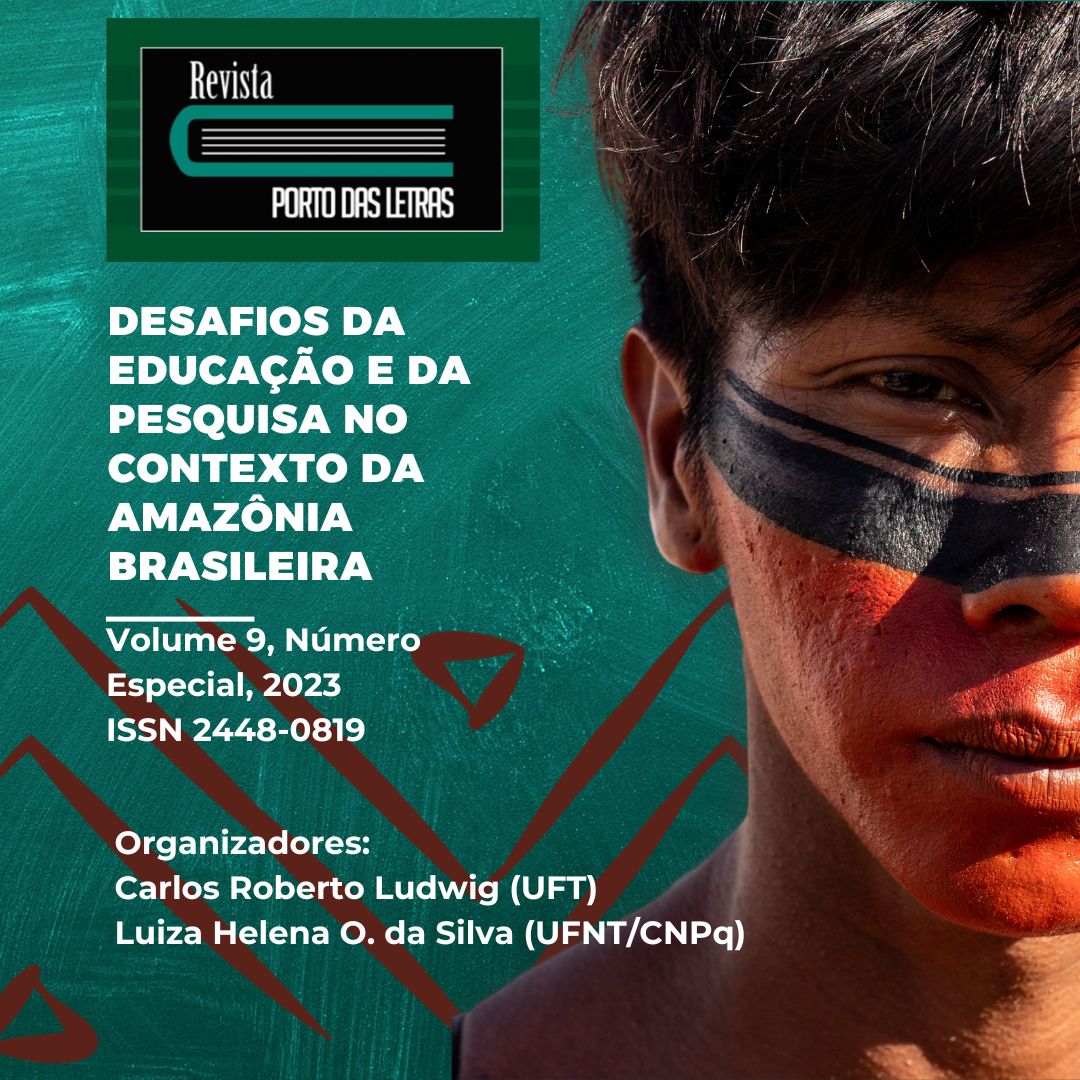Análise Linguística na perspectiva dialógica em Relatórios de Estágio Supervisionado
Abstract
Within the scope of Applied Linguistics, the practice of Linguistic Analysis has been used as a stitching point for language practices in teacher training. On the other hand, in the school environment, traditional grammar teaching still prevails based on classifications, using the text as a pretext for analyzing isolated terms, making it impossible to use the language effectively in various situations of social interaction. In place of this model considered outdated, grammar studies focus on reflection on linguistic use and language exercise. This article aims to verify the conception of linguistic analysis (LA) recorded in Reports of Supervised Internships in Portuguese Language and Literature I and II of a degree course in Letters. This is a documentary, qualitative and descriptive research located in the field of Indisciplinary Applied Linguistics, having as theoretical foundation the contributions of linguistic studies related to the Dialogical perspective, grammatical studies and Linguistic Analysis. The results of this study show that undergraduate students understand the relevance of LA in the critical-social formation of students, however, during the regencies in Portuguese language classes, teachers in initial training, for the most part, adopted a traditional teaching approach, that is, they did not prioritize grammatical studies (linguistic, epilinguistic and metalinguistic activities).
References
ANGELO, Cristiane Malinoski Pianaro; MENEGASSI, Renilson José; FUZA, Ângela Francine. (Org.) A leitura em perspectiva dialógica: atividades com o poema. In: Leitura e Ensino de Língua. São Carlos: Pedro & João Editores, 2022, p. 371-417.
BAGNO, Marcos. Os objetos do ensino de língua na escola: uma mudança de foco. In: COELHO, Lígia M. (Org.). Língua materna nas séries iniciais do Ensino Fundamental: de concepções e de suas práticas. Petrópolis: Vozes, 2009. p. 157-171.
BAKHTIN, Mikhail. Questões de estilística no ensino da língua. 2 ed. São Paulo: Editora 34, 2019.
BAKHTIN, Mikhail Mikhailovich. Estética da criação verbal. 6 ed. São Paulo: Editora MWF Martins Fontes, 2011.
BARROS, Diana Luz Pessoa; FIORIN, José Luiz (Org.). Dialogismo, Polifonia, Intertextualidade: Em torno de Bakhtin. São Paulo: Universidade de São Paulo, 2003.
BATISTA-SANTOS, Dalve Oliveira; SILVA, D. H. P. O. Construindo um perfil de Leitor na Prática Dialógica de Leitura. In: Dalve Oliveira Batista-Santos; Maria Perla Araújo Morais. (Org.). Ensino e Aprendizagem de Língua Portuguesa: Confrontando e Ressignificando Práticas Silenciadoras. 26 ed. Palmas/TO: EDUFT, 2020, v. 1, p. 09-28.
FUZA, Ângela Francine; RITTER, Lilian Cristina Buzato. Práticas de Leitura/Análise Linguística com tira em quadrinhos no Ensino Fundamental: Uma Proposta Didático-Pedagógica. In: PEREIRA, Rodrigo Acosta; COSTA-HÜBES, Terezinha da Conceição. (Org.). Prática de análise linguística nas aulas de Língua Portuguesa. São Carlos:Pedro & João Editores, 2021. p. 453 – 482.
FRANCHI, Carlos. Criatividade e Gramática. Trabalhos em Linguística Aplicada, Campinas, n.9, p.5-45, 1988.
GERALDI, J.W. Portos de passagem. 2. ed. São Paulo: Martins Fontes, 1993, p. 135-165.
GERALDI, J.W. et al. (orgs.). O texto na sala de aula. 3. ed. São Paulo: Ática, 1999.
GIL, A. C. Como elaborar projetos de pesquisa. 6. ed. São Paulo: Atlas, 2017.
KLEIMAN, A. Oficina de leitura: teoria e prática. 15. ed. Campinas: Pontes, 2013, p. 21-44.
LUDKE, Menga; ANDRÉ, Marli E.D.A. Pesquisa em educação: abordagens qualitativas. São Paulo: EPU, 1986.
MENDONÇA, M. Análise linguística no Ensino Médio: um novo olhar, um outro objeto. In: Clecio Bunzen & Márcia Mendonça. (Org.) Português no Ensino Médio e formação do professor. São Paulo: Parábola Editorial, 2006, p. 199-227.
MENDONÇA, M. Análise linguística: refletindo sobre o que há de especial nos gêneros. In: SANTOS, C. F.; MENDONÇA, M.; CAVALCANTI, M. C. B. (orgs.) Diversidade textual: os gêneros na sala de aula. Belo Horizonte: Autêntica, 2007, p. 73-88.
NEVES, M. H. M. Que gramática ensinar na escola? São Paulo: Contexto, 2003.
OHUSCHI, M. C. G.; PAIVA, Z. L. R. Atividades de análise linguística: questões de metalinguagem no processo de compreensão textual. Anais eletrônicos. III CIELLI - Colóquio Internacional de Estudos Linguísticos e Literários. 2014.
POLATO, Adriana Delmira Mendes; MENEGASSI, Renilson José. Epistemologia Teórica do nascimento da Prática de Análise Linguística: Décadas de 80 E 90. In: PEREIRA, Rodrigo Acosta Pereira; COSTA-HÜBES, Terezinha da Conceição [Orgs.]. Prática de análise linguística nas aulas de Língua Portuguesa. São Carlos: Pedro & João Editores, 2021.
RECHDAN, M. L. A. Dialogismo ou Polifonia? Revista de Ciências Humanas, Taubaté, v. 9, n.1, p. 45-54, 2003. Disponível em: <https://www.ufrgs.br/soft-livre-edu/polifonia/files/2009/11/dialogismo-N1-2003.pdf>. Acesso em: 31 de maio de 2023.
SILVA, W.R. Estudo de gramática no texto: demandas para o ensino e a formação do professor de língua materna. Maringá: Eduem, 2011.
Downloads
Published
How to Cite
Issue
Section
License
Os autores concordam com os termos da Declaração de Direito Autoral, que se aplicará a esta submissão caso seja publicada nesta revista (comentários ao editor podem ser incluídos a seguir).

